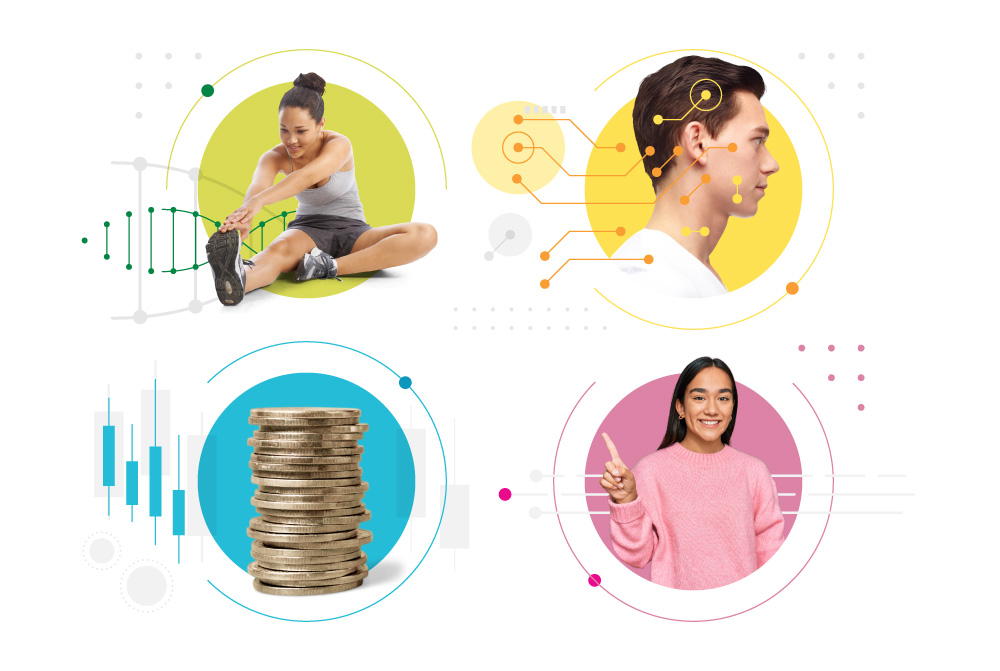As the UK’s data protection regulator, the Information Commissioner’s Office (ICO) seeks to foster trust in how organisations process personal information. We want to empower people to safely share their information and harness the benefits innovation has to offer. By identifying the privacy and data protection implications of emerging technologies before they are widely used, we are better placed to proactively set out our regulatory responses and enable innovators to consider these challenges in the design-phase of development.
In our first annual Tech horizons report, published in 2022, we highlighted the implications of four of the most significant technological developments for privacy in the next two to five years.
In light of continuing rapid technological advancement, this second edition considers a further eight technologies we believe may have a particularly significant impact on our societies, economies and information rights in the next two to seven years.

Eight priority technologies
- Genomics: The sequencing of the human genome to improve understanding of a broad range of traits, mostly used in healthcare. There is further potential for these insights to be used in fields such as employment, sports and education.
- Immersive virtual worlds: Highly immersive virtual environments, also known as the metaverse, in which users can interact with each other and make use of digital services, such as e-commerce and gaming.
- Neurotechnologies: Consumer, enterprise and healthcare devices and procedures, both invasive and non-invasive, that directly record and process neuro-data to gather information, control interfaces or devices, or modulate neural activity.
- Quantum computing: By taking advantage of phenomena at the atomic scale, quantum computing may in future be able to resolve highly complex computational problems that current computers cannot, but may also present serious risks to existing encryption.
- Commercial use of drones: Unmanned aerial vehicles (UAVs) used in commercial settings, for example in delivery and e-commerce, monitoring, and crowd control.
- Personalised AI: The customisation of large language models, based on individual users’ search patterns and personal preferences and characteristics, to create more tailored user experiences and better-targeted outputs.
- Next-generation search: Next generation search engines incorporating new technologies, such as embedded AI capabilities, as well as voice-based, image-based and ambient elements.
- Central bank digital currencies (CBDCs): A new form of central bank-issued digital money, which would complement physical cash and other payment mechanisms in facilitating everyday payment needs.
Each of the eight technologies discussed in this report presents their own unique opportunities and challenges. They could improve our health, our social interactions, our environment and how we do business. However, we have also identified a number of overarching trends and dynamics that will need to be addressed as the technologies develop:
- New innovations across fields like neurotechnology, immersive technologies and genomics allow organisations to collect novel types of intimate information about people. As innovators seek to harness the significant benefits these new technologies may offer, it is important they build in appropriate safeguards from the outset.
- Many new technologies collect and process increasingly large amounts of personal information to better personalise experiences. The scale and complexity of this processing makes it increasingly difficult for people to understand how organisations are using their information and what the combining of different pieces of information may reveal about them.
- We have seen an accelerated pace of innovation in the past 12 months, especially in the field of artificial intelligence. The increased use of AI in other technology domains, from neurotechnology to search, has resulted in a rapid increase in new uses and developments that we, as a regulator, need to keep up to date with.
- Multiple organisations are involved in processing people's information, leading to a lack of clarity. This makes it harder for people to understand who is processing their information, and how they can exercise their information rights. Being transparent will be critical to
maintaining people's trust.
- The misuse of several of the technologies considered in this report could particularly impact people who already need extra support to protect themselves. Organisations should ensure they put appropriate safeguards in place. New solutions should also not introduce new types of harm or discrimination.
Many organisations continue to build data protection by design into their innovations. Others may need guidance, or to work with the regulator, to consider how they can engineer privacy into their ideas.
We will address issues proactively as these technologies mature and our role in regulating them develops. We will:
- involve the public in decisions about how we, as a regulator, address the risks and benefits these new innovations may present;
- continue to invite innovators to work with our Regulatory Sandbox to engineer data protection into these technologies from the outset, focussing on the most innovative propositions;
- share further insights on priority technologies by developing foresight reports, starting with quantum and genomics in 2024;
- continue to work closely with our partners at the Digital Regulation Cooperation Forum (DRCF) to act on shared regulatory challenges and opportunities; and
- continuously scan the horizon for further developments that require our immediate attention and possible intervention.